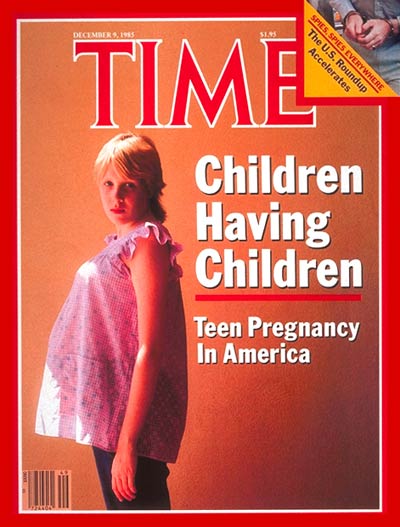Unwanted pregnancy is a worldwide problem that affects teenagers, their families and society. Unintended pregnancy can result from conceptive failure, non-use of conceptive services and less than commonly rape.
In many developing countries like Nigeria, poverty, malnutrition, lack of sanitation and education contribute to serious health consequences for women and their families experiencing teenage pregnancy.
Unintended pregnancy and consequently unsafe abortion remain major reproductive health problems in Nigeria that need to be tackled. Unwanted pregnancy constitute a problem even at the community level and more research is need to understand the persistent disparity between contractive knowledge and usage, as increased usage will reduce unwanted pregnancy and induced abortion.
In Nigeria, teenage pregnancy resulting from 16 to 20 years most of them secondary school student and post secondary school student. Young girls today mature faster physically and emotionally and it’s hardly surprising that they explore their sexuality at a younger age. During adolescence, teenager’s often feel pressure to make friends and fit in with their friend to influence their decision to have sex even when they do not fully understand the consequences associated with the act.

Teenagers in Nigeria have sex as a way to appear and sophisticated, but in some cases the end result is an unplanned teen pregnancy, increasing socio- economic problems which result in pressure on young people to exchange sex for money, glamorization of sex in the mass media without equally highlighting the associated risk permissive attitude of society towards premarital sexual relation for boys as part of their predatory sexual socialization culture which places higher value on child bearing as a greater achievement for girls, parent who gives out their children in marriage at an early age for economic gains or under the guise of protecting her from herself or temptation from others, delaying marriage for reasons of increasing focus on education/carrier pursuit. While marriage is being delayed the other factors listed above combine together to influence sexual activity among young people.
Teenage pregnancy has serious impact on the future of teenage women in Nigeria, many teens lack typically skills, needed to handled the pregnancy and motherhood. Medical complication occur in pregnant teenager may occur doing a teen pregnancy including, anemia, toxemia, high blood pressure, placenta previa and premature birth of the baby. Teenager also may so far an emotional crisis if she becomes pregnant and does not want the baby and it may lead to rash behavior attempting to abort the child and or suicide attempt. She may also have fear about having the baby will have impact on her life and dreams for the future. It delayed education of teenage women they rather take care of child than to go to school, if they get chance they rather get married.
The teen may fall into depression while trying to handle the emotions a pregnancy creates and all of the possibly negative feedback about the pregnancy from the friends and family. Financial difficulties may arise during a teen pregnancy or after the baby is born. It is expensive to raise a baby. Teens who do not have full time employment may struggle to cover the basics expenses of life upon having a baby.
Teenage pregnancy affects the life and future of our teens women in Nigeria, affect them socially and psychologically. Nigerian government together with non-government organization including parents/guardians, teachers and educational administration, health care organization and providers, policy makers, religious and community leaders and mass media to address the peculiar needs of adolescence. Teenagers in Nigeria need to learn their sexuality and reproductive health from everyone in a position to provide counseling.
Government in collaboration with non-governmental organizations in Nigeria, are urged to provides the needs of adolescence and to establish appropriate programmes to meets those such programmes should support mechanism for the education and counseling of adolescence in Nigeria through their areas, gender relations and equality violence against adolescents responsible sexual behavior, sexual transmitted diseases HIV infection and Aids prevention. Programmes for the prevention and treatment of sexual abuse and incents and other reproductive health services should be provided. Such programmes should provide information to a adolescents and make a conscious effort to strength positive social and cultural values.
Muhammed Abdullahi Umar, Department of Mass Communication
University of Maiduguri.


